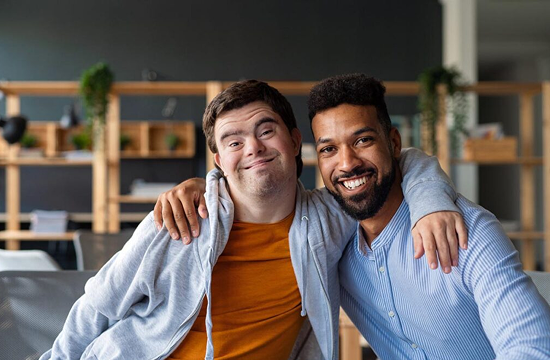Supporting Individuals with Down Syndrome
At Kavya Speech & Hearing Clinic, we proudly support individuals with Down syndrome by recognizing their unique strengths and needs. Our personalized therapy programs focus on building communication, social skills, and confidence in a warm, inclusive environment. We work closely with families to create a nurturing space where growth is encouraged and potential is celebrated. Through expert care and compassionate guidance, we help individuals with Down syndrome thrive and lead fulfilling lives, while fostering a community that values diversity and inclusion.


